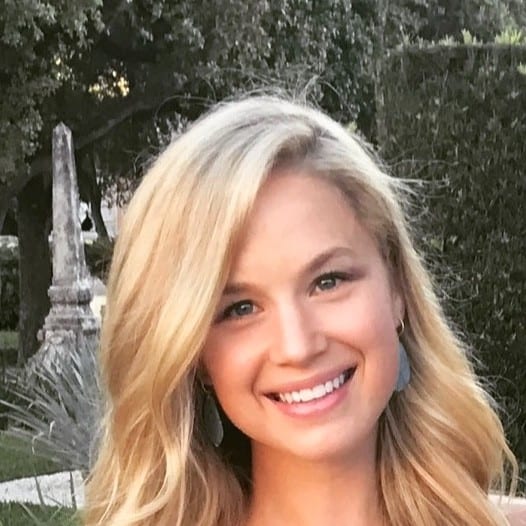Visibility is not the identical as acceptance or equality.
That is what author Amelia Abraham realized when she went up north to Stockport, UK, to go to some LGBTQ youth teams and talked to younger folks between 11 and 16 years previous about their experiences of being queer.
“Numerous them that skilled fairly horrific hate crimes or the kind of homophobia that I have been fortunate sufficient to not ever needed to endure — issues like bodily violence,” she says. Abraham says many talked of the LGBTQ position fashions they give the impression of being as much as, together with non-binary actor Ruby Rose. “However it did not actually really feel like that top-level visibility had actually filtered down to enhance their day-to-day expertise.”
It was throughout this go to that she was impressed to edit a guide of essays that might present folks simply what wants to alter to tangibly enhance the lives of LGBTQ folks. We Can Do Higher Than This: 35 Voices on the Way forward for LGBTQ+ Rights is an anthology of items by 35 folks from the LGBTQ group on how we will begin to create a greater future. (Disclosure: The creator of this story shares the identical writer as Abraham.)
Contributors embrace It is a Sin star Olly Alexander, designer Jonathan Anderson, creator Naoise Dolan, journalist Shon Faye, singer Beth Ditto, RuPaul’s Drag Race star Peppermint, drag performer Amrou Al-Kadhi, theatre maker Travis Alabanza, photographer Wolfgang Tillmans, drag queen Pabllo Vittar and extra.
The essays themselves cowl a broad spectrum of themes, from reflecting on experiences of courting as a trans particular person, to constructing a kinder queer group, studying to like oneself, and embracing the fluidity of 1’s personal identification. Different essays focus on visibility and public security, HIV stigma, pressured intersex surgical procedures, and queer influencer tradition.
“We speak so much about how for future generations every little thing’s a lot extra accepting and so significantly better and I believe generally that may be a little bit of a fable,” says Abraham. “That is what that have confirmed me. After we speak about issues being so significantly better now, there’s a lot extra now, particularly for the youthful era, however I believe I’ve came upon firsthand that that is not essentially true. Particularly exterior of main cities, and particularly exterior of Western nations.”
Amelia Abraham, editor of We Can Do Higher Than This.
Credit score: olivia thompson
Abraham factors out two of her favorite essays from the guide. “One is by Levi Hord, who’s a trans educational, they usually’re speaking about rising up and attempting to think about what their household would appear to be and creating these queer co-ops with their Barbies,” she says. “Then they speak about how they’ve began to consider being pregnant as a trans particular person. There’s this wonderful argument for a way if we took a much less gendered strategy to being pregnant, it might profit not simply trans folks, however mainly everybody in society.”
“It is a guidebook for the subsequent 10 years of activism for LGBTQ+ folks themselves and for anybody who desires to be an ally.”
One other essay Abraham loves is “Fortunately Ever After Is not Accessible To Me” by Canadian queer incapacity activist Andrew Gurza. “He talks about his courting experiences actually vividly and with a lot humour, and what you find yourself encountering as a queer disabled particular person,” she says.
Abraham needed to discover not simply what nonetheless wants to alter and how far we’ve got to go, however to current methods to make life higher for queer folks and to make sure their precise security. In relation to conversations about LGBTQ rights, Abraham says we’re very reactive as a society. “So it takes one thing to occur — just like the Chris and Melania assault on the bus [when two queer women were physically assaulted] — to ensure that there to be an outcry or horror, or a will to motion from folks exterior of the group, or it takes Black Lives Matter protesters to attract consideration to the variety of Black trans folks being killed in America for folks exterior of the group to grasp that that is an issue,” says Abraham.
For Abraham, the guide was meant to be energetic quite than reactive. “You needn’t simply reply when one thing dangerous occurs, we will always be attempting to push issues ahead in all these methods,” she says. “It is a guidebook for the subsequent 10 years of activism for LGBTQ folks themselves and for anybody who desires to be an ally or cares about LGBTQ rights.”
By understanding what the subsequent frontiers are, we will start to know what we’re preventing for, says Abraham. “I hope that by spotlighting tales of what totally different queer folks all all over the world are experiencing we will begin to get an image of what wants to alter, whether or not it’s HIV stigma, bullying in colleges, the criminalisation of homosexuality, lack of look after LGBTQ aged, or lengthy ready instances for trans folks,” she says.
If the guide encourages folks to alter their minds in regards to the LGBTQ group, that will likely be actually helpful, says Abraham. “And if it encourages materials motion, then even higher.”
We Can Do Higher Than This: 35 Voices on the Way forward for LGBTQ+ Rights is out now by way of Classic Books.

